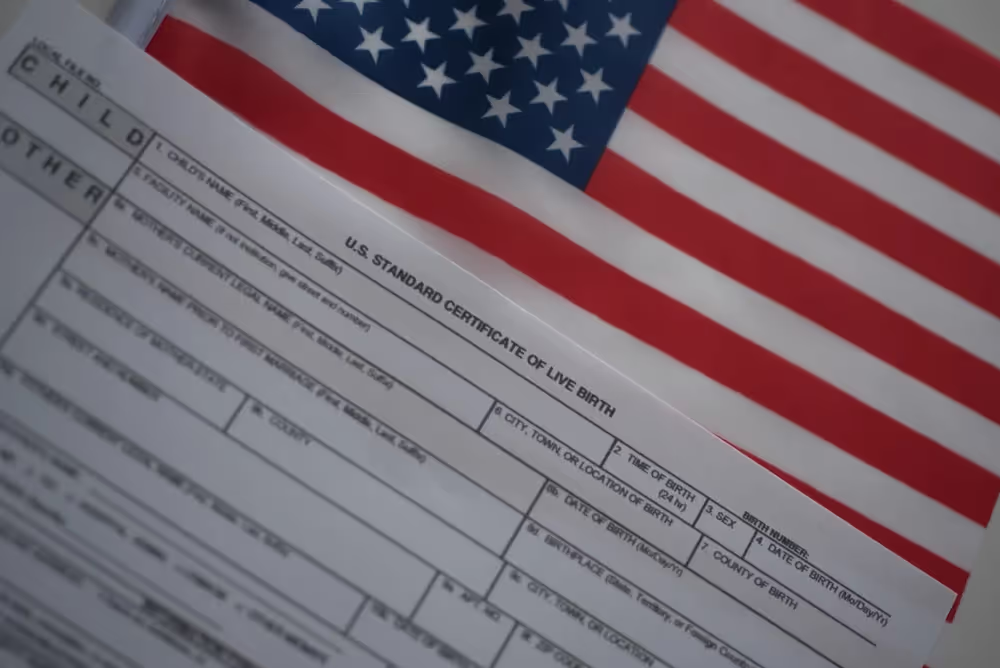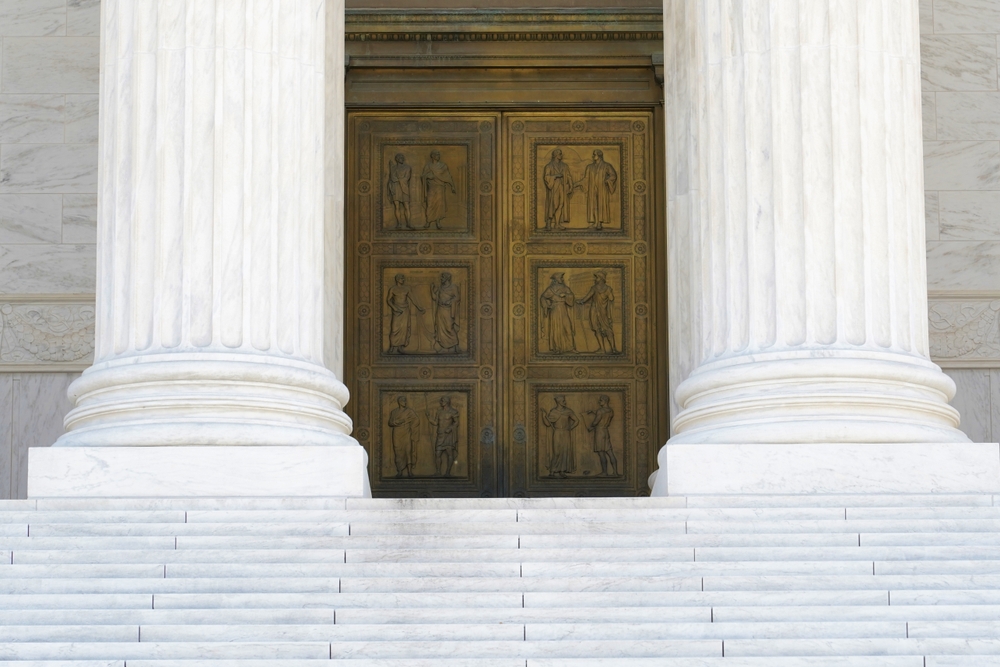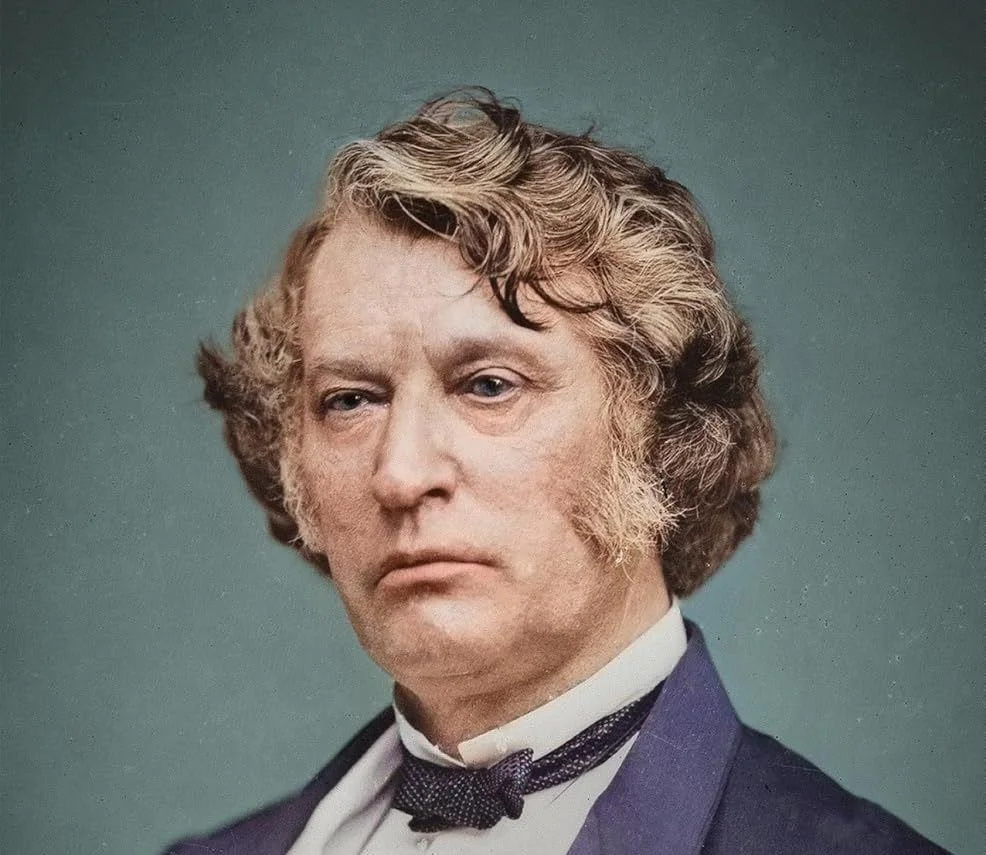
Why Issues of Birthright Citizenship Are So Difficult
There is no perfect answer to the question, “What is the scope of birthright citizenship?”
The Citizenship Clause of the Constitution’s Fourteenth Amendment provides in part, “All persons born or naturalized in the United States, and subject to the jurisdiction thereof, are citizens of the United States and of the State wherein they reside.” A newborn who qualifies under this provision is said to have “birthright citizenship.”
There is sharp disagreement among both politicians and legal experts on the scope of birthright citizenship. The disagreement centers on the requirement that a child not only be born within the United States, but also be “subject to the jurisdiction thereof.” Most commentators agree that the child of a foreign diplomat or a foreign invader is not “subject to the jurisdiction thereof.” Beyond that, they split at least four ways:
Position #1: A child born in the United States is subject to U.S. jurisdiction—and therefore a citizen—only if one or both of the child’s parents are citizens. A foreigner cannot pass on U.S. citizenship to his children.
Position #2: A child born in the U.S. is “subject to the jurisdiction” if he has a parent who is either a citizen or a legal foreign domiciliary—that is, a foreigner permanently and legally residing here. Children of foreign sojourners (temporary foreign visitors) are not citizens. Nor are the children of illegal aliens. This is essentially the Trump administration’s view.
Position #3: A child born in this country is “subject to the jurisdiction” if a parent is in “allegiance” to the United States. A foreigner—resident or sojourner—legally in this country owes primary allegiance to his own sovereign, but also owes local allegiance to the United States. By virtue of local allegiance, his children born here are U.S. citizens. This was the prevailing view when the Constitution was adopted, and arguably was baked into the document’s use of the word “citizen.”
Position #4: Any child born within the country, except the children of invaders and foreign diplomats, is “subject to the jurisdiction” of the United States. This includes the children of foreigners, whether here legally or illegally, permanently or temporarily. This reading is most consistent with how the Constitution uses the word “jurisdiction” elsewhere. It was the U.S. government’s operating assumption prior to the Trump administration and is favored by most left-of-center commentators today.
What makes this issue so difficult is that all these positions have evidence to support them. As a result, even scholars who agree on most issues sometimes split on the scope of birthright citizenship. Illustrative is the division between John Eastman and John Yoo, both outstanding originalist scholars.
The Fourteenth Amendment Muddle
Most of the framers of the original Constitution were lawyers, and even most of the non-lawyers were learned in the law. They generally employed language to which history had imparted precision. But the same cannot be said of the members of the Congress who, in 1866, proposed the Fourteenth Amendment.
The Supreme Court has issued some of its most popular decisions under the Fourteenth Amendment, so there has been little disposition to criticize the drafters’ work. But truth be told, the amendment’s drafters did not do an excellent job. On some occasions, they employed language not previously defined. “Subject to the jurisdiction thereof” is one example. On other occasions, they adopted terms that had been previously defined—but resorted to erroneous definitions instead. The words “privileges” and “immunities” both had clear definitions when incorporated into the Constitution’s Article IV, but the drafters of the Fourteenth Amendment relied instead on a later erroneous and internally-inconsistent definition.
Other drafting problems became evident during the run-up to the 2024 election, when the courts split radically on the meaning of the Amendment’s Section 3 (the disqualification provision), due to that section’s multiple uncertainties.
The lack of useful evidence from the ratification debates in the state legislatures compounds the interpretive problems afflicting the Fourteenth Amendment. To the extent that those debates have been published, they tend to focus on specific applications of particular clauses (such as granting citizenship to former slaves) rather than the wider meaning of those clauses. As a result, we must rely primarily on previous history and the congressional debates for interpretive guidance.
The Previous History Muddle
In 1857, the Supreme Court issued its decision in Dred Scott v. Sandford. The court’s ruling disrupted previous citizenship law (Position #3, above) by holding that African-Americans, even if free and born in the U.S. of parents legally here, could never be U.S. citizens.
In 1866, Congress passed the Civil Rights Act. One of its provisions stated, “[A]ll persons born in the United States and not subject to any foreign power, excluding Indians not taxed, are hereby declared to be citizens of the United States.” This language purported to overrule Dred Scott. However, it did not incorporate the status quo ante (Position #3), because it explicitly excluded anyone “subject to a foreign power,” as resident and sojourner aliens both are. Instead, the Civil Rights Act adopted Position #1.
Congress proposed the Fourteenth Amendment in large part to validate the Civil Rights Act. Yet the drafters of the Amendment opted for language considerably different from that employed in the Act. Over the ensuing 159 years, commentators have argued over whether the scope of key parts of the Fourteenth Amendment is the same as that of the corresponding provisions of the Civil Rights Act.
Still another complicating aspect of prior history is that after the slave trade became illegal (1808), slavers smuggled an unknown number of Africans into the country. Presumably, the Fourteenth Amendment granted citizenship to the children of these “illegal aliens,” although no one said so.
The Congressional Debate Muddle
Article V of the Constitution empowers Congress to propose an amendment for state ratification if both chambers approve the amendment by two-thirds majorities. An early draft of the Fourteenth Amendment was passed by the House of Representatives first and then transmitted to the Senate. The House draft referred to U.S. “citizens” but failed to define the word.
When the Senate took up the bill on May 23, 1866, Benjamin Wade of Ohio observed:
In the first section . . . the word “citizen” is used. That is a term about which there has been a good deal of uncertainty . . . I regard it as settled by the civil rights bill, and, indeed, in my judgment, it was settled before. I have always believed that every person, of whatever race or color, who was born within the United States was a citizen of the United States.
Wade’s last sentence seems to support Position #4, the most liberal version of birthright citizenship. But he equated it with the Civil Rights Act, which adopted Position #1.
William Fessenden of Maine demurred: “Suppose,” he asked, “a person is born here of parents from abroad temporarily in this country?” Wade responded that he knew children of foreign diplomats were not citizens—which, of course, contradicted his earlier statement. But he favored allowing the children of all foreigners to be citizens because there would only be a few of those and “de minimis lex non curat”—the law does not care about trifles. Wade was not contemplating the unauthorized immigration of millions of people.
On May 29, Jacob Howard of Michigan proposed adding these words: “All persons born in the United States and subject to the jurisdiction thereof are citizens of the United States and of the States wherein they reside.” The following day, Senator Howard explained his proposal:
This amendment which I have offered is simply declaratory of what I regard as the law of the land already, that every person born within the limits of the United States, and subject to their jurisdiction, is by virtue of natural law and national law a citizen of the United States. This will not, of course, include persons born in the United States who are foreigners, aliens, who belong to the families of ambassadors or foreign ministers accredited to the Government of the United States, but will include every other class of persons.
Thus, according to Howard, his bill both reflected the status quo (Position #3) and excluded the children of all foreigners (Position #1).
Then James Doolittle of Rhode Island intervened: “I presume the honorable Senator from Michigan does not intend by this amendment to include the Indians.” Doolittle was referring not to Indians integrated into state populations, but to those in U.S. territories whose allegiance was solely to their own tribes. Doolittle suggested that the latter class be excluded as “Indians not taxed”—a phrase appearing in the original Constitution, in the Civil Rights Act, and in another part of the draft amendment.
Senator Howard responded that the existing language already excluded tribal Indians. They “are not, in the sense of this amendment, born subject to the jurisdiction of the United States. They are regarded, and always have been in our legislation and jurisprudence, as being quasi foreign nations.”
Edgar Cowan of Pennsylvania said he was “really desirous to have a legal definition of ‘citizenship of the United States.’. . . What does it mean? What is its length and breadth? It is perfectly clear that the mere fact that a man is born in the country has not heretofore entitled him to the right to exercise political power.”
On that last point, Cowan was correct: Foreigners generally could not serve in federal office and foreigners not in allegiance could not impart citizenship to their children. Yet John Conness of California read the amendment to mean that “children of all parentage . . . should be regarded and treated as citizens of the United States . . . .” He added that it would grant citizenship to the children of resident Chinese nationals.
Doolittle and others contended that Howard’s definition of “subject to the jurisdiction” was wrong: Federal law and military force frequently affected tribal Indians in the territories. Therefore, they were “subject to the jurisdiction” of the United States. This had Fessenden concerned: if there was any chance the amendment granted citizenship to the children of “all the wild Indians,” then it was seriously flawed.
In defense, Lyman Trumbull of Illinois contended that “subject to the jurisdiction thereof” meant subject to the complete jurisdiction thereof: “Now, all that this amendment provides is, that all persons born in the United States and not subject to some foreign Power . . . shall be considered as citizens of the United States.” On another occasion, too, he said “subject to the jurisdiction” was limited to those who owed “allegiance solely to the United States.” This interpretation would disqualify both tribal Indians and all foreigners. It is Position #1.
But on yet another occasion Trumbull added, “I know of no better way to give rise to citizenship than the fact of birth within the territory of the United States, born of parents who at the time were subject to the authority of the United States.” This would seem to include aliens legally in the U.S. (Position #3).
Then, Indiana’s Thomas Hendrick inserted a 1856 attorney general’s opinion into the debate. It concluded that tribal Indians, while not citizens, were “subjects” of the United States. Hendricks seized on the opinion to argue that because the Indians were mere subjects, they “therefore are not, in more right of home-birth, citizens of the United States.” Perhaps not. But under traditional Anglo-American law, non-citizen subjects are in allegiance to the sovereign and therefore can pass “natural born” status to their children.
Senator Howard resumed: “The Indians are our wards. Such is the language of the courts. They have a national independence. The United States courts have no power to punish an Indian who is connected with a tribe for a crime committed by him upon another member of the same tribe.” Howard’s reliance on the Indians’ status as foreigners implies that other aliens cannot pass on U.S. citizenship to their children. This was consistent with Howard’s previous Position #1 statements. But when Fessenden interjected, “Within the territory” and Howard responded, “Yes, sir,”—he implied that a tribal Indian might be able to pass on citizenship if he or she begat a child within the boundaries of a state rather than within a U.S. territory.
Still further complicating matters was a lengthy June 5 speech by Timothy Howe of Wisconsin suggesting the Fourteenth Amendment would admit to citizenship “all men . . . who are born and reared upon American soil.” Except for the addition of “reared,” this is Position #4.
Thus, neither the 1866 Civil Rights Act nor the senatorial debates over the Fourteenth Amendment sent a clear message. One can cite elements of the debate to support all four positions. Perhaps because Senator Howard was the sponsor, his views are entitled to special weight. But while he mostly promoted Position #1, he also represented the Citizenship Clause as a return to previous law (Position #3). He even implied that if a tribal Indian was born within a state, he or she might be a citizen.
Supreme Court Cases
In the Slaughterhouse Cases (1872), decided just four years after the Fourteenth Amendment was ratified, the Supreme Court took Position #1—although it did so only in dicta: “The phrase ‘subject to its jurisdiction’ was intended to exclude from its operation children of ministers, consuls, and citizens or subjects of foreign States born within the United States.” In 1884, the court issued Elk v. Wilkins, which endorsed Senator Howard’s view that tribal Indians were not “subject to the jurisdiction.” It also supported Position #1:
The main object of the opening sentence of the fourteenth amendment was to . . . put it beyond doubt that all persons . . . owing no allegiance to any alien power, should be citizens of the United States and of the state in which they reside. . . . The evident meaning of these last words is, not merely subject in some respect or degree to the jurisdiction of the United States, but completely subject to their political jurisdiction, and owing them direct and immediate allegiance.
Yet in United States v. Wong Kim Ark (1898), the Supreme Court held that legal foreign domiciliaries can pass citizenship to a child born here. But this may have been more than a Position #2 ruling, because the Court further adopted the traditional English law of allegiance, under which legal foreign sojourners also can pass citizenship to any children born here—that is, Position #3.
The Children of Illegal Entrants
Neither the congressional debates nor the Supreme Court cases addressed specifically whether persons illegally in the country were “subject to the jurisdiction thereof” and therefore could pass birthright citizenship to their children. Under the traditional (Position #3) view, illegal entrants were “enemy aliens” not in allegiance to the sovereign whose laws they had defied. But what of the children of Africans smuggled through the illegal slave trade? If the Fourteenth Amendment granted them birthright citizenship, does this imply that the children of other illegal entrants are entitled to the same privilege?
Not necessarily. Allegiance is a concept applicable to free people. Allegiance has never been a prerequisite for a slave to be “subject to the jurisdiction” of government. Moreover, in contrast to the person who demonstrates lack of allegiance by violating the host country’s immigration law, a slave involuntarily in a host country may enter allegiance to it merely by agreeing to be subject to its laws. Thus, in Somerset v. Stewart (1772)—the same case in which Lord Mansfield announced that slavery did not exist in England—the court granted British-subject (allegiance) status to James Somerset, who had been forced into an English port, legally escaped onto English soil, and asked for the protection of English law.
Summary
Among the four main positions, I lean toward the third—that children born within the United States are citizens if their parents are citizens or legal foreign residents or legal foreign sojourners. This was the law when the Constitution was adopted, and the sponsors of the Citizenship Clause represented that the clause merely continued pre-Dred Scott jurisprudence. This position also aligns with the English law of allegiance endorsed by the Supreme Court in Wong Kim Ark, and it meshes with the sponsors’ claim that “subject to the jurisdiction” excludes at least some foreigners.
Still the point remains: There is no perfect answer to the question, “What is the scope of birthright citizenship?”
Robert G. Natelson, a former constitutional law professor who is senior fellow in constitutional jurisprudence at the Independence Institute in Denver, authored The Original Constitution (4th ed., 2025). He is a contributor to the Heritage Foundation’s Heritage Guide to the Constitution.
Constitutionalism

Amicus Brief: Hon. William P. Barr and Hon. Michael B. Mukasey in Support of Petitioners
Former AGs Barr and Mukasey Cite Civitas in a SCOTUS Brief

Rational Judicial Review: Constitutions as Power-sharing Agreements, Secession, and the Problem of Dred Scott
Judicial review and originalism serve as valuable commitment mechanisms to enforce future compliance with a political bargain.

Supreme Court showdown exposes shaky case against birthright citizenship
Supreme Court will hear challenges to Trump's order ending birthright citizenship, testing the 14th Amendment's guarantee for babies born in America.

Slavery and the Republic
As America begins to celebrate its semiquincentennial, much ink has been spilled questioning whether that event is worth commemorating at all. Joseph Ellis’s The Great Contradiction could not be timelier.

Two Hails For The Chief’s NDA
Instead of trying to futilely plug the dam to stop leaks, the Court should release a safety valve.


.avif)










.avif)



